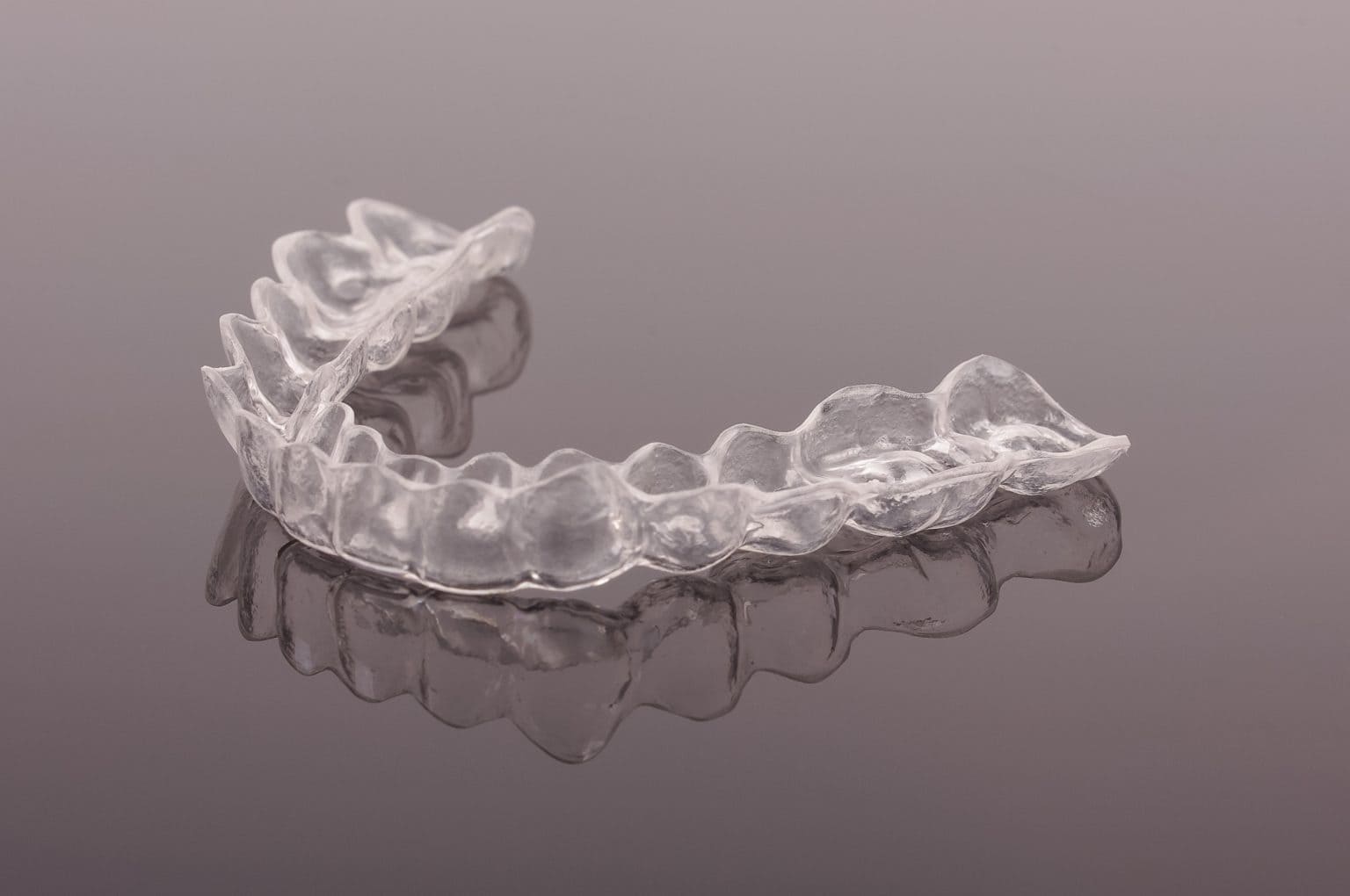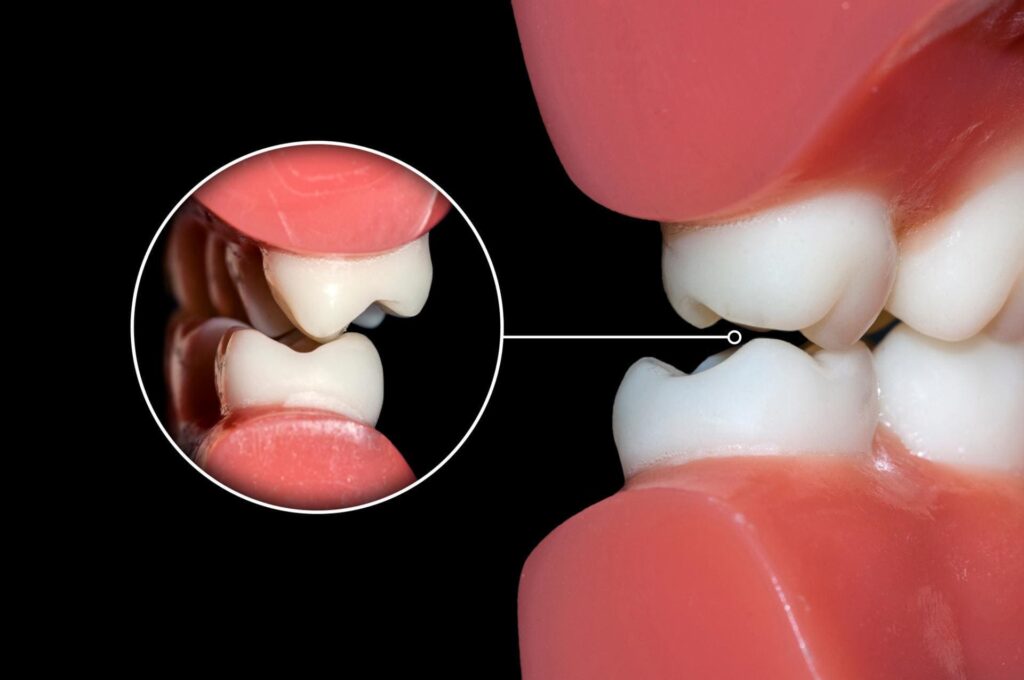BRUXISM & TEETH GRINDING
Bruxism (teeth grinding) is a situation where teeth are clenched.
Most of the time it’s hard to understand the reason of bruxism. It’s cause may be a combinations of the physical, psychological and genetic factors.
Bruxism may happen only at nights, mornings or both of them together.
Bruxism causing risk factors may be as the following:
- Stress: Increasing anxiety or stress may cause bruxism. Anger or disappointment may cause it too.
- Stress: Increasing anxiety or stress may cause bruxism. Anger or disappointment may cause it too.
- Character Type: Having an aggressive, competitive or hyperactive character can raise your bruxism risk.
- Medication and Other Substances: Bruxism may be a rare side effect of psychiatrics drugs. Smoking,
caffeinated drinks or using drugs for pleasure may raise the bruxism risk. - Family Members With Bruxism: Sleep bruxism tends to occur in families. If you have bruxism, other
members of your family may have it or history of it too. - Other Disfunctions: Bruxism can be associated with parkinson disease, dementia, gastroesophageal reflux disorder (GERD), epilepsy, night terrors, sleeping disorders like sleep apnea and mental health
problems like attention deficit disorder (ADD) / attention deficit disorder with hyperactivity.

Morning bruxism can be caused by feelings like anxiety, stress, anger, disappointment or agitation or it may be a habit or a coping strategy during deep concentration moments. Sleep bruxism may be a soporose chewing habbit about stimulations during sleep.
Dr. Engin UTKAN

DIAGNOSIS AND TREATMENT
During your regular dental examinations, your dentist checks you up about bruxism symptoms. If you have any, your dentist examines the findings in your mouth and teeth in the next couple of visits in order to see the process’ progress and determine if you need a treatment or not.
If your dentist suspects bruxism, he tries to figure out the reason of it by asking you questions about your general dental health, your medication, your daily routines and your sleeping habits.
In order to evaluate the severity of bruxism, your dentist may check the following:
- Sensitivity in jaw muscles.
- Dental abnormalities like fractured or missing teeth.
- Damages on your teeth, lower bone and inner parts of your cheeks.
- Dental examination can determine other deformities that may cause similar jaw or ear sorenesses like temporomandibular joint disorders (TMJ), other dental problems or health conditions.
TREATMENT
In most cases, treatment is not necessary. Children with bruxism can get rid of it
without any treatment. As for a great deal of adults don’t grind or squeeze their
teeth much to require a treatment. However, if problem is severe, with certain dental approaches and therapies, in order to prevent further dental damage and
eliminate the jaw soreness, medications may be recommended.
You need to consult your dentist in order to know which choice is the best fit for you.
You need to consult your dentist in order to know which choice is the best fit for you.
DENTAL APPROACH
Even though these methods can prevents corrosions on your teeth, thay may not
stop bruxism.
- Mouth Guarding Plates: These are designed for preventing the damage caused by teeth squeezing and grinding, and isolating the teeth. These are made from solid acrylic and can be placed either to your upper or lower teeth.
- Restoring Corroded Teeth: In severe cases – when corrosion causes sensitivity or bad chewing – your dentist may use crowns/inlays/onlays in order to reshape your teeth’s chewing surfaces or fixing the damage.
OTHER APPROACHES
One or more of these following approaches can help easing bruxism:
Stress and Anxiety Management:
If you grind your teeth out of stress, you can prevent the problem by learning relaxing strategies like meditation. If bruxism is related to anxiety, a suggestion from a licenced therapist or an advisor might be helpful.
Behavioral Change:
When you realize you have bruxism, you can change behavior by applying proper mouth and jaw position. Ask your dentist to show the most proper position for your mouth and jaw.
Biological Feedback:
If you’re having hard time about changing your habits, you can use biofeedback, which is a method that uses observing procedures and equipments in order to teach you to control muscle activity in your jaw

MEDICATION IN BRUXISM TREATMENT
Generally, medicines are not very effective in bruxism treatment and more
research is needed to determine their effectiveness. Medicine examples for to use in bruxism treatment include the following:
Muscle Relaxants:
In some cases your dentist may suggest you to take relaxants a bit before you go to bed.
Botox Injections:
These injections may help patients who have a condition that is recalcitrant to other treatments for acute case’s solution.
TREATMENT OF RELATED DISFUNCTIONS
Medications:
If your bruxism started as a side effect from a medicince, your dentist may change your medication or prescribe you another one.
Sleep Related Disfunctions:
Handling the sleep related disfunctions like sleep apnea can heal bruxism.
Medical conditions:
If bruxism is caused by an underlying disease like gastroesophageal reflux disease, it’s treatment can fix bruxism.
Dt. Engin UTKAN
Dt. Utkan was born in 1975, İstanbul. He graduated from Istanbul University faculty of dentistry in 1998.
Utkan carries his studies on in the areas of aesthetic dentistry, implantology and smile design while employing the methods by using the possibilities of the latest modern medical techology with his comprehensive experience.
Utkan speaks good command of English, German and Italian.

CONTACT US
Utkan CLINIC
Dental Aesthetıcs
Apply the form by choosing the treatments you want to get information about. Your smile assistant will be reaching out for you on the shortest notice.